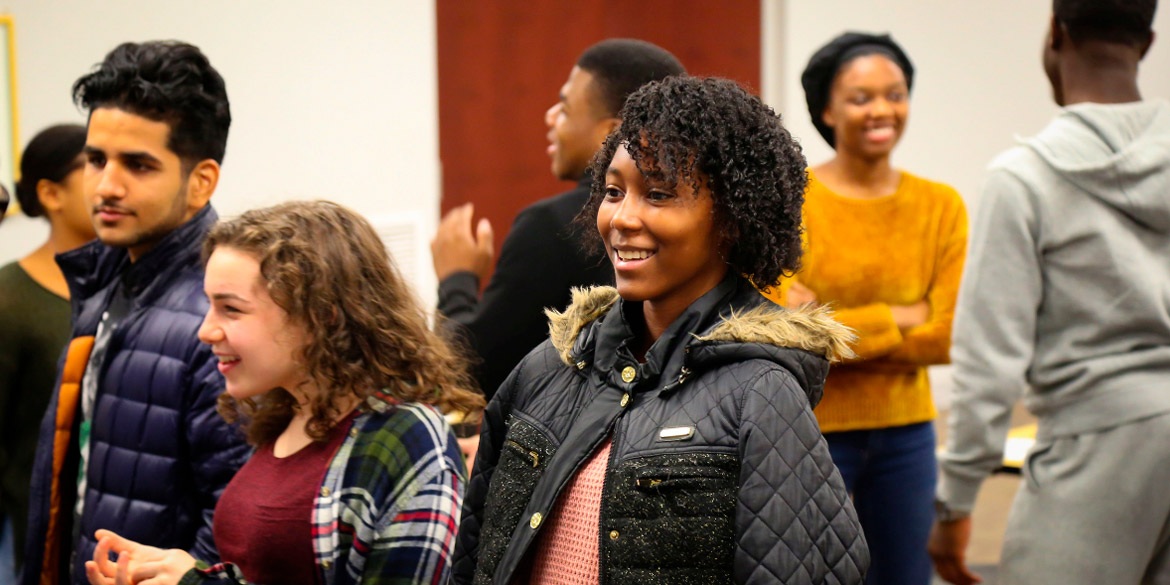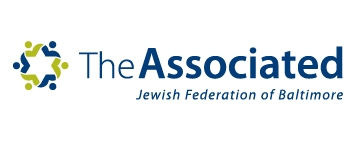Partner Content
A student finally opens up and moves past her abused childhood; Jewish and African-American teens work together to find social justice solutions; a former immigrant pays it forward.
These individuals, engaged in the programs of The Associated: Jewish Federation of Baltimore, represent Baltimore’s future. With a 100-year legacy in Baltimore City, The Associated is committed to ensuring the community’s long-term success.
Transforming Lives
In the more than 10 years that Danielle Bagonis has taught at Morrell Park Elementary/Middle School, she can’t remember a project that has made such an impact on her students. She’s seen how it’s changed lives—how a student, once raped by a family member, finally opened up and sought help, or how another student with an eating disorder realized schoolmates cared about her health.
Last year, Danielle and her eighth-grade students participated in Morrell Park: PROJECTED, a collaboration between the Jewish Museum of Maryland (JMM) and film students from The Johns Hopkins University. For several months, the students learned about storytelling, producing films about their lives that premiered at the JMM.
These powerful films exposed deep feelings and helped many understand themselves better. Danielle believes the project worked because of the trust developed between the eighth graders, Hopkins students, and museum.
“Many of these kids are used to people letting them down. If you build trust, they will do anything for you.”
The program was so successful, not only in helping students tell their story, but also in exposing them to technology and new parts of their community, that it will be implemented for the second year at Morrell Park and also at Graceland Park-O’Donnell Heights Elementary/Middle School.
Danielle recalls Marvin Pinkert, executive director of the JMM, speaking at the premier about why a museum would care about inner-city students’ stories. “He said, ‘It’s not about religion, race, or socio-economics. Everyone has a story worth hearing.”
Working for Social Justice
When Bella Saunders started her high school junior year, she didn’t realize there were food deserts, urban areas where it was difficult to buy affordable, nutritious food. It wasn’t until she became a Social Justice Teen Fellow, a joint program between the Baltimore Jewish Council (BJC) and the Elijah Cummings Youth Program (ECYP), that she was determined to showcase the problem.
This year, Bella, who is Jewish, worked with a small group of predominantly African-American and Jewish teens to develop a “food desert” simulation for a Teen Summit for the Fellowship program. They encouraged participants to make a list of what their families commonly purchase, then took these lists throughout the room. They found foods available at corner stores, mini-marts, and liquor stores to help participants understand the far-reaching effects of food injustice.
The Teen Summit, keynoted by Democratic Congressman Elijah Cummings, was the capstone to a nine-month program that brings together 26 Jewish and African-American high school students to build greater understanding across racial and religious backgrounds. The hope is that they will be better prepared to talk about racism, anti-Semitism, and social justice.
“People bring their own experience and perspective to how they look at the world,” Saunders says. “If we want solutions, particularly today in our polarized society, we need to know we can talk about issues in a safe environment. And that is what this program does.”
Paying it Forward
Natalya D. understands what it’s like to struggle. Twenty-six years ago, when she and her family arrived in Baltimore from the former Soviet Union, they weren’t sure how they were going to put food on the table. Finding a job was not going to be easy—no one really spoke English.
Yet, Natalya admits she and her family were fortunate. The Associated and its network of agencies introduced them to community members, arranged for the family to learn English, helped her parents find a job, and set her on a course for a college education.
Two decades later, much has changed for Natalya. And she wants to return the favor.
“I wanted to help others, so I turned to the organization that once helped my family. I am working with Jewish Volunteer Connection (JVC).”
JVC works with local nonprofits to fill their volunteer needs. They connected Natalya to Baltimore Hunger Project (BHP). Each week, Natalya travels to Patterson Park, delivering bagged lunches to Head Start preschoolers living in this impoverished part of the city.
“It means a lot to the children and families here at Patterson,” says Lashawna Spencer, family services coordinator at DaySpring Head Start. “Children are always excited to receive their bags. It’s a big help that BHP assigned us a dedicated volunteer who is friendly, persistent, and caring.”
Image: Farrah Arnold, Earth Street Photography


